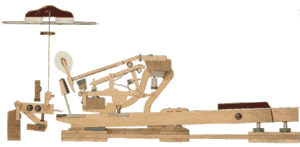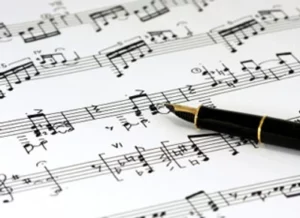So you’ve decided to start piano lessons. Congratulations! But before you have that first lesson, here are my top eight tips of things to do before you have that first lesson. These will help you save time and money and help you get the most out of that first lesson.
#1: Buy a piano
OK, this might seem obvious, but you would be surprised how often I am asked if it is possible to start piano lessons without a piano. Since it is impossible to make any progress without an instrument, save your money on wasted lessons and get that piano first.
It is also not possible to start lessons without access to a decent instrument. This does not mean that you have to have a Steinway grand piano in your house, but an acoustic instrument is absolutely necessary.
These days it is pretty easy to find a very reasonably priced second hand instrument – even second hand grands are very cheap. ​
In the past I have relented and allowed some students to start with lessons either without a instrument on the promise of an imminent purchase, or with a substandard instrument.
The results weren’t great.
#2: Put the Piano in an Appropriate Place
Don’t put the piano in the TV room. The last thing you want is for there to be a conflict between TV watchers and your piano practise
Don’t put the piano in the loneliest part of the house. Your child probably won’t be that inspired to practise if the piano is in the gloomiest, dustiest or most isolated part of your house
#3: If you have an acoustic piano, keep it tuned
Pianos need tuning – just like a car! You should get it tuned just before your child starts lessons or once the instrument is delivered to your place. From there, tuning it once a year will be enough, but don’t leave it more than 18 months before you get it done again.​
#4: Teach your child the music alphabet​
You can save some time by teaching your child the music alphabet before they start lessons. So they should be able to say the alphabet from A to G and, even better, if they can say these seven letters forwards and backwards, you’ll save yourself and your child a couple of lessons.
#5: Encourage your child to play around with the piano before you start lessons
There is no substitute for getting a child excited about playing the piano than sitting them down in front of it and letting them have a play with it and pianos are pretty tough.
Encourage your child to play around with different parts of the keyboard: the white and black keys, the high and low keys, the pedals, etc.
#6: Buy an adjustable stool and a pedal extender
This is extremely important. The height at which each person sits at the keys is one of the most important aspects of piano playing (read my blog article on Pain and the Piano). And, your child’s feet need to be planted flat on the floor. To this end, you can either put those stacks of carpet squares or mats on the floor, or better still get a pedal extender so that your child can utilise the pedals as soon as possible.
#7: Make sure your child knows right from left
Again, this all saves time and gives your child a head start before they start lessons.
#8: Make a commitment to help your child out with their practise (at least at first)
One of the best indicators of whether a child is going to be successful at the piano is how much time and energy the parents are willing to invest in helping their child out.
This is not to say that you have to know anything about how to play the piano or that you have to spend hours and hours every day helping your child out. It just means that, particularly if your child is quite young, that you will need to sit next to them at first while they practise. You should be encouraging, help them get to the piano (even if it is for 10 minutes here are there) and help them to remember what happened in their lesson…
What Next?
I ask parents to sit in on lessons so that they know what is being covered and to help remind their children what they have to do at home between lessons. If that’s not possible, I always write down notes for both the student and the parents in their digital notebook. Kids cannot remember everything that happened during the lesson, and they will need reminding. You can also videotape the lessons so that there is a clear reminder of what was covered in the lesson.
You can also help out by just encouraging your child to play little pieces for you or the family or ask them to play that scale or show you how their practise is going. And this will also help give them confidence playing.






